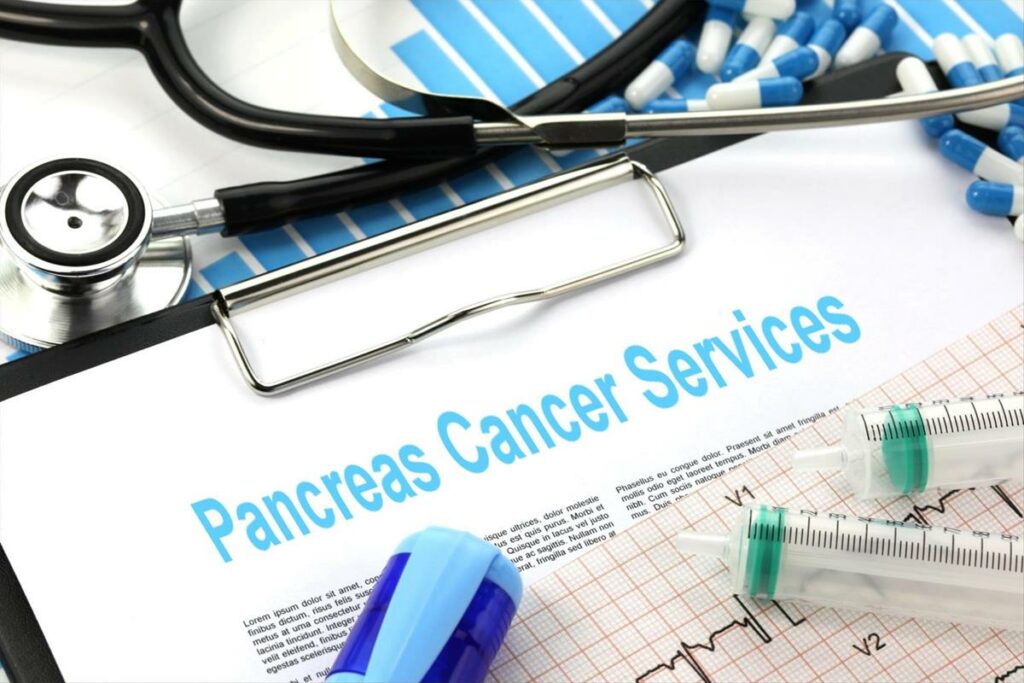Navigating the turbulent waters of oncology, one disease strikes as particularly insidious – pancreatic cancer. In this comprehensive review, we’ll explore the early signs of this elusive disease and illuminate the range of treatment options available. As an experienced medical doctor specializing in oncology, I will guide you through the subtleties of this aggressive disease, focusing on pancreatic cancer signs and treatment. This knowledge is not only vital for patients and caregivers but for anyone invested in their health and well-being. Let’s embark on this educational journey and unmask the realities of pancreatic cancer together.
Overview of Pancreatic Cancer
One of the key organs in our digestive system, the pancreas, can, unfortunately, become the site of a particularly aggressive form of cancer. Pancreatic cancer arises when cells in the pancreas, a vital organ that lies behind the lower part of your stomach, begin to multiply out of control and form a mass. The statistics surrounding this disease are daunting, with it being the fourth leading cause of cancer-related deaths. The high mortality rate can partly be attributed to late detection, as symptoms often don’t appear until the disease is advanced. Given these challenging statistics, understanding the early signs and treatment options of pancreatic cancer is our first step toward better management.
Early Signs
Early detection of pancreatic cancer can be a challenge, mainly because it often doesn’t cause symptoms until it’s advanced. However, subtle signs may exist, and being aware of them can expedite diagnosis. Some of these include abdominal or back pain, unexplained weight loss, jaundice, loss of appetite, and new-onset diabetes. It’s important to remember that these symptoms can also be caused by other conditions, so experiencing them doesn’t necessarily mean pancreatic cancer is the culprit. But recognizing potential signs and seeking timely medical advice could mean catching the disease earlier, ultimately improving treatment options and outcomes.

Risk Factors
Cancer doesn’t discriminate, but certain risk factors make some of us more susceptible to pancreatic cancer than others. Some risk factors are unmodifiable, such as age, family history of the disease, or genetic mutations. However, others are lifestyle-related and can be changed, such as smoking, obesity, and a diet high in processed or red meat. A history of diabetes or chronic pancreatitis can also increase one’s risk. While risk factors can’t predict with certainty who will get pancreatic cancer, understanding them can guide us in reducing our risk and staying vigilant about our health.
Role of Diagnosis
When it comes to the complex world of pancreatic cancer, diagnosis plays a pivotal role. Since the disease often makes its presence known only in advanced stages, a high level of clinical suspicion can prompt necessary investigations. Various tests like blood tests, imaging studies like CT scans, MRI, PET scans, and tissue biopsy can help confirm the diagnosis. Endoscopic ultrasound is also often used for a closer look at the pancreas. Moreover, certain tumor markers such as CA 19-9 may be elevated in pancreatic cancer, providing another piece in the diagnostic puzzle. But let’s remember, these tests don’t merely serve to confirm a diagnosis; they also guide the path forward, shaping the treatment plan for each unique case.
Treatment Options
Once diagnosed, what’s next? The path of treatment for pancreatic cancer is a multifaceted one, tailored to the specifics of each case. The stage of the cancer, the patient’s overall health, and their personal preferences all play a part in crafting the treatment plan. The three main types of treatment include surgery, chemotherapy, and radiation therapy. In some cases, a combination of these may be used. Recent advances in medicine have also brought forth novel treatments like targeted therapy and immunotherapy. While the road may be long and arduous, there are numerous treatment options available today, offering hope for those battling this disease.

Support and Resources for Pancreatic Cancer
A diagnosis of pancreatic cancer impacts more than just the physical body; it reverberates through every aspect of life. Therefore, support during this journey is essential. This might come in the form of a supportive medical team, counseling services, or patient support groups. There are also many resources available online for both patients and caregivers. From educational websites to forums where you can share your experience, these resources can provide invaluable help and comfort. Living with pancreatic cancer isn’t easy, but with the right support, it’s far from impossible.
Our exploration of pancreatic cancer has taken us through its early signs, the pivotal role of diagnosis, treatment options, and the importance of support. Remember, knowledge is our most potent weapon against this disease. Whether you’re a patient, caregiver, or simply someone committed to health education, understanding pancreatic cancer signs and treatment strategies can make a world of difference. Let’s continue this conversation, raise awareness, and foster a community dedicated to supporting those impacted by pancreatic cancer.